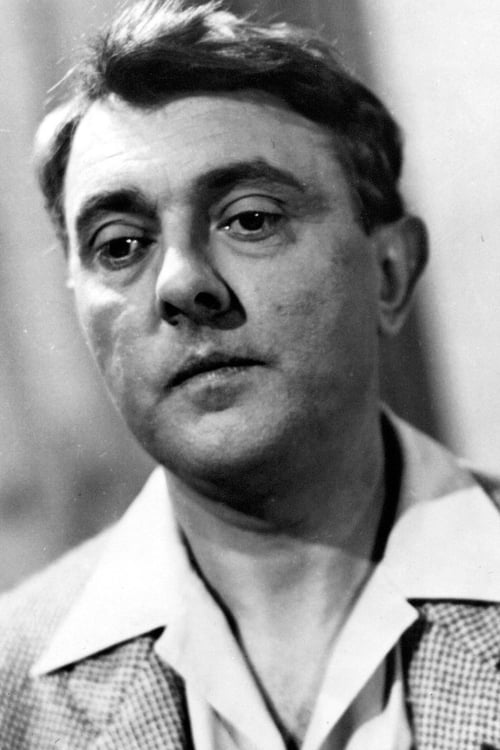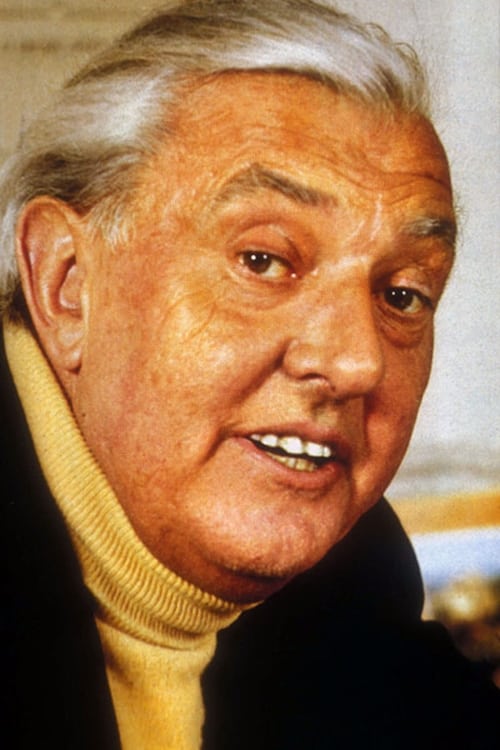
Lui-même (archives)
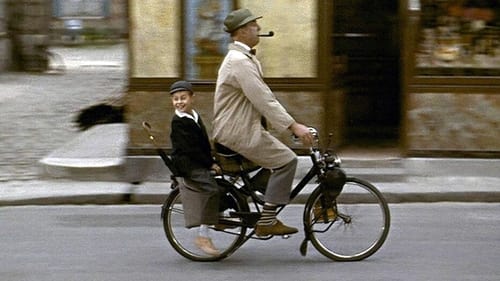
Self (archive footage)
The crazy rise and fall of Jacques Tati, comedy genius, actor, director and athlete of laughter. Or how the inventor of the mythical Mr. Hulot made France laugh, then the world, flying from success to success, rising higher and higher, until he came a little too close to the sun.

Self (archive footage)
Tati Express dives into Jacques Tati's films and how they look at a changing world throughout the 20th century. It shows how modernity impacts human-beings and goes through that amazing body of work at 100 mph.

Self (archive footage)
Documentary analysis of French director Jacques Tati's 1949 film "Jour de fete". Goudet tracks the evolution of Tati’s comedy stylings, from their origins in the short films where he first appeared through his ambitious feature productions.

Self (archive footage)
In this 2013 visual essay, Jacques Tati scholar Stéphane Goudet discusses how the filmmaker’s appreciation for the circus, clowns, and mime humor is reflected in PARADE, and analyzes the film’s various comedic acts.

Self (archive footage)
A 2013 Visual Essay on Playtime by Stéphane Goudet.
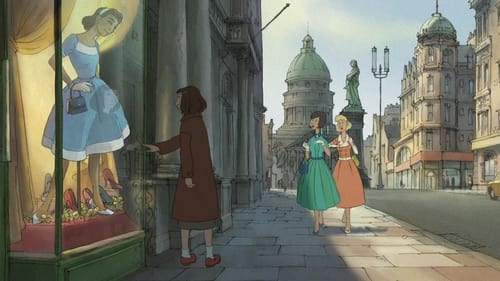
Screenstory
A French illusionist travels to Scotland to work. He meets a young woman in a small village. Their ensuing adventure in Edinburgh changes both their lives forever.

Original Story
A French illusionist travels to Scotland to work. He meets a young woman in a small village. Their ensuing adventure in Edinburgh changes both their lives forever.

Original Film Writer
A French illusionist travels to Scotland to work. He meets a young woman in a small village. Their ensuing adventure in Edinburgh changes both their lives forever.

Monsieur Hulot (archive footage) (uncredited)
A French illusionist travels to Scotland to work. He meets a young woman in a small village. Their ensuing adventure in Edinburgh changes both their lives forever.
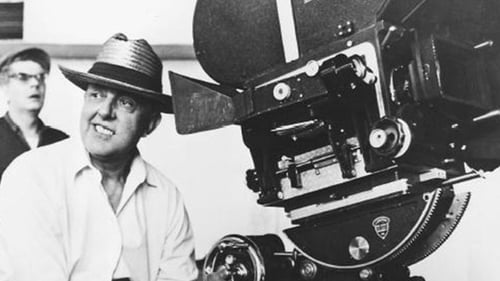
Self (archive footage)
This documentary traces Jacques Tati's rise from the Parisian Music-Hall stage to his Oscar winning films of the 1950s, the documentary then explains how Tati bet all he had on his fourth film 'PlayTime' and how this mammoth film ended prematurely the career of a genius while also giving the world one of the most beautiful films ever made.

Self (archive footage)
Television documentary about the making of Jacques Tati's 1958 film "Mon oncle".

Self (archive footage)
This short documentary from 2002, written by Jacques Tati scholar Stéphane Goudet and featuring rare archival footage, explores the genesis of the director’s hugely ambitious 1967 film production.

Self (archive footage)
This is a brief bio of the life of Tati through his works. Begins with his silent period, then feature films, and shows many examples from the short films on this disc. For someone with such a limited output of work, his reach and genius was limitless.

Self (archive footage)
Two-part documentary about French director Jacques Tati chronicles the evolution of the filmmaker's alter ego, Monsieur Hulot, through archival interviews, on-set footage, photos, and film clips.

Self (archive footage)
Episode of the French television series "Cinéma Cinémas" which documents the discovery of the negatives that led to the completion of the color version of Jacques Tati’s 1949 film "Jour de fête".

Self - Interviewee
Interview with the French film director, conducted for television in 1978.
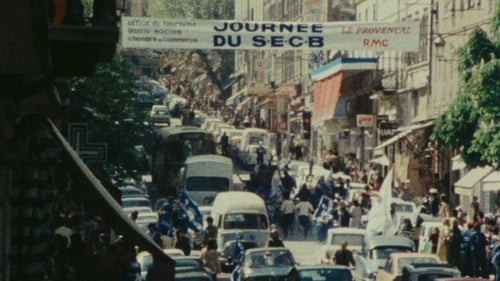
Writer
"Forza Bastia" is a 26-minute film documenting a UEFA Cup match between PSV Eindhoven and French club SC Bastia at the Furiani Stadium in 1978. Jacques Tati directed the piece at the request of friend Gilberto Trigano – the President of the Bastia club at that time. It was subsequently shelved and kept in storage until Tati's daughter Sophie Tatischeff eventually assembled the footage for release in 2002.

Director
"Forza Bastia" is a 26-minute film documenting a UEFA Cup match between PSV Eindhoven and French club SC Bastia at the Furiani Stadium in 1978. Jacques Tati directed the piece at the request of friend Gilberto Trigano – the President of the Bastia club at that time. It was subsequently shelved and kept in storage until Tati's daughter Sophie Tatischeff eventually assembled the footage for release in 2002.

Self - Interviewee
Interview with French director Jacques Tati, focusing on his on-screen persona, Monsieur Hulot. Produced for the British television series "Omnibus".

Scenario Writer
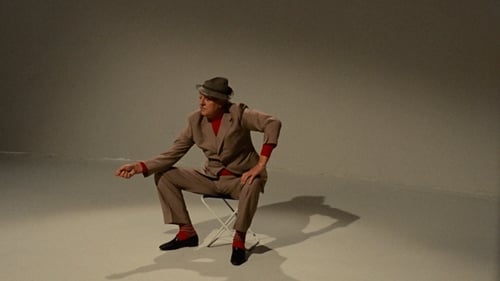
Monsieur Loyal
For his final film, Jacques Tati takes his camera to the circus, where the director himself serves as master of ceremonies. Though it features many spectacles, including clowns, jugglers, acrobats, contortionists, and more, Parade also focuses on the spectators, making this stripped-down work a testament to the communion between audience and entertainment.

Screenplay
For his final film, Jacques Tati takes his camera to the circus, where the director himself serves as master of ceremonies. Though it features many spectacles, including clowns, jugglers, acrobats, contortionists, and more, Parade also focuses on the spectators, making this stripped-down work a testament to the communion between audience and entertainment.

Director
For his final film, Jacques Tati takes his camera to the circus, where the director himself serves as master of ceremonies. Though it features many spectacles, including clowns, jugglers, acrobats, contortionists, and more, Parade also focuses on the spectators, making this stripped-down work a testament to the communion between audience and entertainment.

Screenplay
Mr. Hulot is the head designer of the Altra Automotive Co. His latest invention is a newfangled camper car loaded with outrageous extra features. Along with the company's manager and publicity model, Hulot sets out from Paris with the intention of debuting the car at the annual auto show in Amsterdam. The going isn't easy, however, and the group encounters an increasingly bizarre series of hurdles and setbacks en route.

Director
Mr. Hulot is the head designer of the Altra Automotive Co. His latest invention is a newfangled camper car loaded with outrageous extra features. Along with the company's manager and publicity model, Hulot sets out from Paris with the intention of debuting the car at the annual auto show in Amsterdam. The going isn't easy, however, and the group encounters an increasingly bizarre series of hurdles and setbacks en route.

Monsieur Hulot
Mr. Hulot is the head designer of the Altra Automotive Co. His latest invention is a newfangled camper car loaded with outrageous extra features. Along with the company's manager and publicity model, Hulot sets out from Paris with the intention of debuting the car at the annual auto show in Amsterdam. The going isn't easy, however, and the group encounters an increasingly bizarre series of hurdles and setbacks en route.
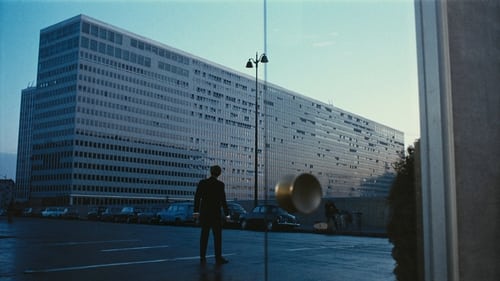
Screenplay
Clumsy Monsieur Hulot finds himself perplexed by the intimidating complexity of a gadget-filled Paris. He attempts to meet with a business contact but soon becomes lost. His roundabout journey parallels that of an American tourist, and as they weave through the inventive urban environment, they intermittently meet, developing an interest in one another. They eventually get together at a chaotic restaurant, along with several other quirky characters.

Monsieur Hulot
Clumsy Monsieur Hulot finds himself perplexed by the intimidating complexity of a gadget-filled Paris. He attempts to meet with a business contact but soon becomes lost. His roundabout journey parallels that of an American tourist, and as they weave through the inventive urban environment, they intermittently meet, developing an interest in one another. They eventually get together at a chaotic restaurant, along with several other quirky characters.

Director
Clumsy Monsieur Hulot finds himself perplexed by the intimidating complexity of a gadget-filled Paris. He attempts to meet with a business contact but soon becomes lost. His roundabout journey parallels that of an American tourist, and as they weave through the inventive urban environment, they intermittently meet, developing an interest in one another. They eventually get together at a chaotic restaurant, along with several other quirky characters.

Director
Seven short films: On demande une brute (1934), Gai dimanche (1935), Soigne ton gauche (1936), L’école des facteurs (1946), Cours du soir (1967), Forza Bastia (1978), and Dégustation maison (1978) written or directed by Jacques Tati.

Writer
Jacques Tati teaches an acting class about the subtleties of certain types of people to a group of eager (but not very talented) students.

Monsieur Hulot
Jacques Tati teaches an acting class about the subtleties of certain types of people to a group of eager (but not very talented) students.

Self - Interviewee
Interview with Jacques Tati on the set of his 1967 film "PlayTime". Produced for the British television program "Tempo International".
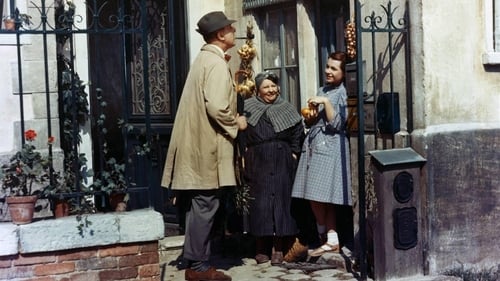
Writer
Genial, bumbling Monsieur Hulot loves his top-floor apartment in a grimy corner of the city, and cannot fathom why his sister's family has moved to the suburbs. Their house is an ultra-modern nightmare, which Hulot only visits for the sake of stealing away his rambunctious young nephew. Hulot's sister, however, wants to win him over to her new way of life, and conspires to set him up with a wife and job.

Producer
Genial, bumbling Monsieur Hulot loves his top-floor apartment in a grimy corner of the city, and cannot fathom why his sister's family has moved to the suburbs. Their house is an ultra-modern nightmare, which Hulot only visits for the sake of stealing away his rambunctious young nephew. Hulot's sister, however, wants to win him over to her new way of life, and conspires to set him up with a wife and job.

Monsieur Hulot
Genial, bumbling Monsieur Hulot loves his top-floor apartment in a grimy corner of the city, and cannot fathom why his sister's family has moved to the suburbs. Their house is an ultra-modern nightmare, which Hulot only visits for the sake of stealing away his rambunctious young nephew. Hulot's sister, however, wants to win him over to her new way of life, and conspires to set him up with a wife and job.

Director
Genial, bumbling Monsieur Hulot loves his top-floor apartment in a grimy corner of the city, and cannot fathom why his sister's family has moved to the suburbs. Their house is an ultra-modern nightmare, which Hulot only visits for the sake of stealing away his rambunctious young nephew. Hulot's sister, however, wants to win him over to her new way of life, and conspires to set him up with a wife and job.
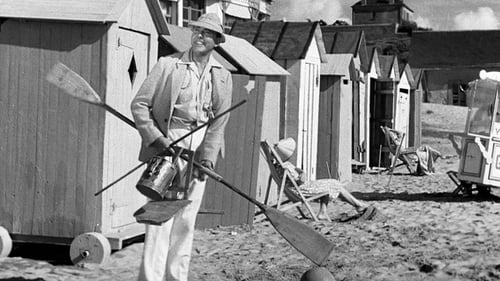
Story
Monsieur Hulot, Jacques Tati’s endearing clown, takes a holiday at a seaside resort, where his presence provokes one catastrophe after another. Tati’s masterpiece of gentle slapstick is a series of effortlessly well-choreographed sight gags involving dogs, boats, and firecrackers; it was the first entry in the Hulot series and the film that launched its maker to international stardom.

Monsieur Hulot
Monsieur Hulot, Jacques Tati’s endearing clown, takes a holiday at a seaside resort, where his presence provokes one catastrophe after another. Tati’s masterpiece of gentle slapstick is a series of effortlessly well-choreographed sight gags involving dogs, boats, and firecrackers; it was the first entry in the Hulot series and the film that launched its maker to international stardom.

Producer
Monsieur Hulot, Jacques Tati’s endearing clown, takes a holiday at a seaside resort, where his presence provokes one catastrophe after another. Tati’s masterpiece of gentle slapstick is a series of effortlessly well-choreographed sight gags involving dogs, boats, and firecrackers; it was the first entry in the Hulot series and the film that launched its maker to international stardom.

Screenplay
Monsieur Hulot, Jacques Tati’s endearing clown, takes a holiday at a seaside resort, where his presence provokes one catastrophe after another. Tati’s masterpiece of gentle slapstick is a series of effortlessly well-choreographed sight gags involving dogs, boats, and firecrackers; it was the first entry in the Hulot series and the film that launched its maker to international stardom.

Director
Monsieur Hulot, Jacques Tati’s endearing clown, takes a holiday at a seaside resort, where his presence provokes one catastrophe after another. Tati’s masterpiece of gentle slapstick is a series of effortlessly well-choreographed sight gags involving dogs, boats, and firecrackers; it was the first entry in the Hulot series and the film that launched its maker to international stardom.

François the postman (uncredited)
Jour de Fête tells the story of an inept and easily-distracted French mailman who frequently interrupts his duties to converse with the local inhabitants, as well as inspect the traveling fair that has come to his small community. Influenced by too much wine and a newsreel account of rapid transportation methods used by the United States postal system, he goes to hilarious lengths to speed the delivery of mail while aboard his bicycle.

Screenplay
Jour de Fête tells the story of an inept and easily-distracted French mailman who frequently interrupts his duties to converse with the local inhabitants, as well as inspect the traveling fair that has come to his small community. Influenced by too much wine and a newsreel account of rapid transportation methods used by the United States postal system, he goes to hilarious lengths to speed the delivery of mail while aboard his bicycle.

Director
Jour de Fête tells the story of an inept and easily-distracted French mailman who frequently interrupts his duties to converse with the local inhabitants, as well as inspect the traveling fair that has come to his small community. Influenced by too much wine and a newsreel account of rapid transportation methods used by the United States postal system, he goes to hilarious lengths to speed the delivery of mail while aboard his bicycle.
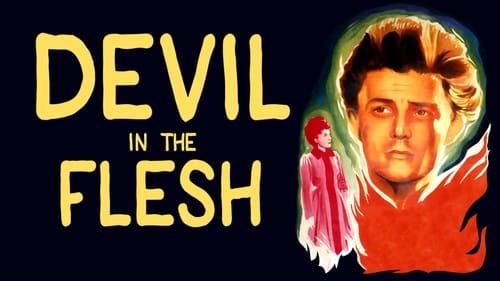
Un officier
In France during World War I, Marthe waits for her husband, Jacques, while he fights on the front lines. Marthe then begins a tempestuous affair with 17-year-old François, with whom she had a dalliance before marrying Jacques. Jealous François struggles with the fact that Marthe is married, while she tries to prove her devotion to her young, hotheaded lover. Things become even more complex when Marthe becomes pregnant with Jacques' baby.

Writer
Jacques Tati plays a French postman adamant to prove he can be just as fast as American postmen at delivering mail.

Postman
Jacques Tati plays a French postman adamant to prove he can be just as fast as American postmen at delivering mail.

Director
Jacques Tati plays a French postman adamant to prove he can be just as fast as American postmen at delivering mail.

le fantôme d'Alain de Francigny
A teenager becomes fixated on a painting of the handsome suitor who died in a duel for her grandmother's love. On her sixteenth birthday, her father hires three men who pretend to be the ghost of the suitor to entertain her. Little do they know, the ghost of the suitor himself is roaming the castle halls.

Writer
Roger, son of a farmer, wants to be a boxer, and gets his chance by filling in for a boxer's sparring partner. However, Roger does not know how to box and reads a rule book while in the ring.

Roger
Roger, son of a farmer, wants to be a boxer, and gets his chance by filling in for a boxer's sparring partner. However, Roger does not know how to box and reads a rule book while in the ring.

Screenplay
Jacques Tati and his friend Rhum star as down-and-outs (very much their situation in reality at the time) who try to generate funds by providing an impromptu leisure tour in a rickety bus they wangle use of for free.

Jacques Tati and his friend Rhum star as down-and-outs (very much their situation in reality at the time) who try to generate funds by providing an impromptu leisure tour in a rickety bus they wangle use of for free.
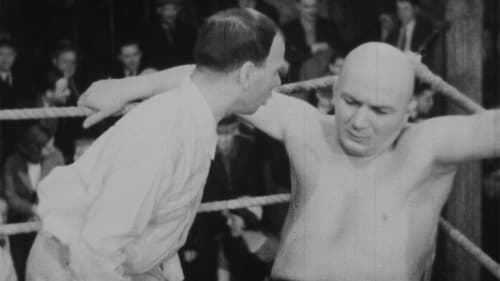
Dialogue
A tall, shy and reserved young actor accidentally signs himself up for a wrestling match.

Screenplay
A tall, shy and reserved young actor accidentally signs himself up for a wrestling match.

M. Roustabat
A tall, shy and reserved young actor accidentally signs himself up for a wrestling match.
